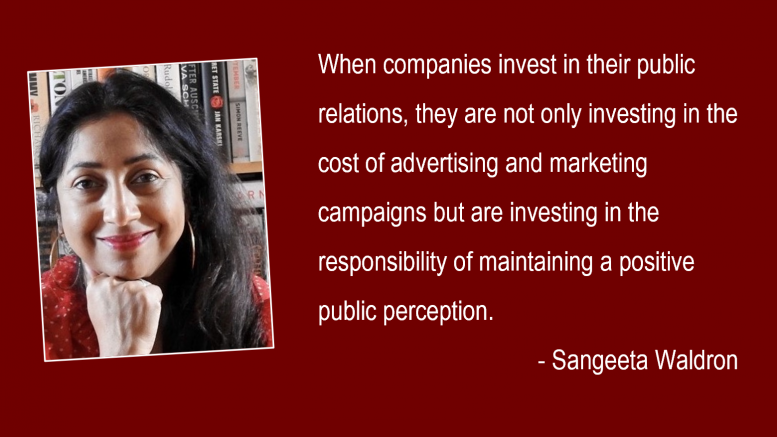Businesses and organisations with a clear social or environmental purpose are stronger when it comes to corporate communication. Public pressure on companies to speak out about social causes has increased dramatically over the last several years, mainly because of the digital age and social media, which has also given rise to something that we now call cancel culture, where some companies have struggled to put together authentic evidence of their Corporate Social Responsibility (CSR) and have been called out for it online.
By contrast, purpose-driven businesses and not-for-profits have thrived among this public pressure because their CSR practices are an inherent part of their company framework and values and come from an authentic place. In a crowded marketplace, where your audience is used to getting bombarded with formulaic marketing tactics, you need to appeal to people on a deeper level to build lasting connections with your brand. One of the best ways to do this is through trustworthy storytelling, which not only helps create a sense of familiarity and trust with your audience but helps to improve their ability to remember information. Whatever medium a brand uses to tell its story — video, audio, graphics, articles, etc. —good authentic corporate storytelling campaign starts with the right approach.
Authentic is the keyword here and if your PR or marketing campaign is not so, people will be able to tell. We know that media literacy is at an all-time high, and people understand how the media works, how information works, what they’re seeing, and who’s talking. Even with all the fake news and misinformation, people are aware and educated about what brands are doing, and whether a brand’s messaging reflects their actual values, policies, and practices.
Customers today are conscious and savvy, where authenticity goes very deep. From a CSR perspective, storytelling has always been a component of stakeholder engagement. Over the past decade, this has taken on a whole new dimension as consumers increasingly demand that brands genuinely express their position on social and environmental issues and impacts. Companies today not only need to do good; they need to tell stories about the good that they’re doing, so that consumers know about it. It’s not a nice-to-have anymore; it’s a necessity!
Not-for-profits usually have a better understanding of this, as they have their mission embedded in the entire functioning of the organisation. Businesses that have good CSR practices and a clear social purpose, are well-positioned too. However, what businesses need to avoid is superficial greenwashing. People can tell when your messaging is glib, and it will affect return on investment. It affects everything.
As a result, to satisfy these demands, brands have started to move away from the standard format of a corporate video in favour of longer form of storytelling. Where longer formats provide the necessary space to fully explore the complexity of issues and authentically describe the brand’s support of their chosen initiative. Whether a feature length documentary, or a series of shorts, CSR storytelling has proven its ability to move and motivate.
Good storytellers often look within to find the ‘heroes’ in a company’s ranks and focus on how these employees make a positive difference in the world. These changes in company communications and behaviour marks a new age of business ethics that make the conventional corporation outdated. Today’s communicators need an authentic approach to CSR, and there’s no better place to look for inspiration than your heritage. Always keep three things in mind, the brand’s story should be simple, authentic, and emotional.
It is also important to remember that the best storytellers are good listeners. When brands listen — to their users, community, teams — they gain not only invaluable insights and knowledge, but their relationships stand the test of time. It builds trust, where the stories and products become sincere reflections of people’s needs, dreams, and passions. Authenticity isn’t just about showing up honestly; it’s about listening and understanding.
The bottom line is that authenticity and trust have become essential functions of good, strong PR and marketing. Millennials will punish companies on social media not deemed to be fully transparent as well as those who pay lip service to CSR and causes important to them. Global brands such as Nike, Barbie, Ben & Jerry’s, and others have put their CSR values at their heart of their storytelling and have been applauded for taking a stand for the better.
When companies invest in their public relations, they are not only investing in the cost of advertising and marketing campaigns but are investing in the responsibility of maintaining a positive public image. If you have a long-term vision, want a long-lasting brand, then implementing genuine CSR strategies, which are integrated with your brand story will not only help you maintain your brand image, but create a strong, sustainable, and long-lasting business model.
CSR-native brands are already here, and traditional brands need to catch up!
The views and opinions published here belong to the author and do not necessarily reflect the views and opinions of the publisher.



Be the first to comment on "CSR is Now the Essential Element of Brand Storytelling"